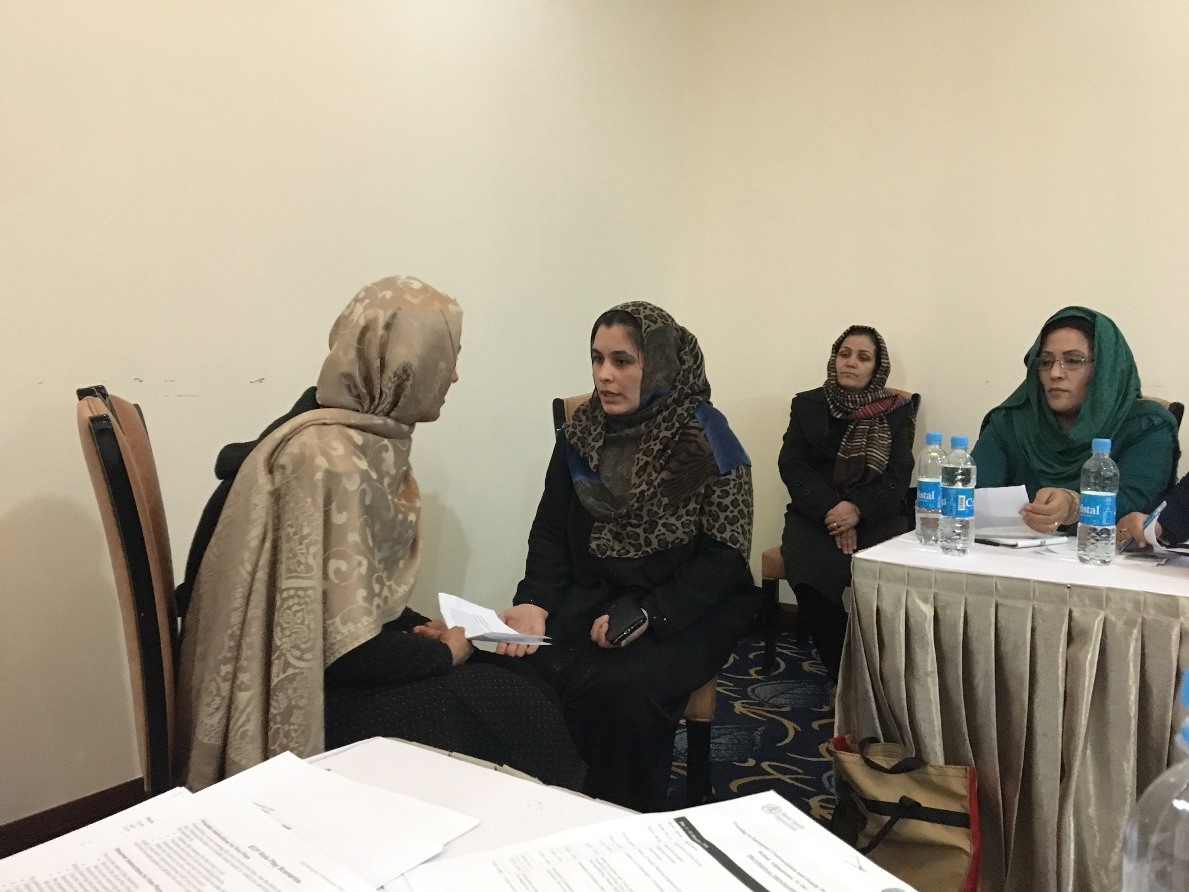 Workshop participants during a role play on emergency contraception counseling10 November 2016 – WHO supported a training workshop on emergency contraception and family planning programming in Kabul on 31 October–1 November 2016 in order to strengthen the Ministry of Public Health’s (MoPH) programming on family planning services as well as to improve the quality and the utilization of these services by Afghans.
Workshop participants during a role play on emergency contraception counseling10 November 2016 – WHO supported a training workshop on emergency contraception and family planning programming in Kabul on 31 October–1 November 2016 in order to strengthen the Ministry of Public Health’s (MoPH) programming on family planning services as well as to improve the quality and the utilization of these services by Afghans.
During the workshop, latest technical updates and guidelines from WHO on the use of emergency contraception and modern contraceptive methods were presented to MoPH and key stakeholders. Ministry officials and partners discussed the revisions that are needed for training curricula and materials to update them according to latest research and guidelines on contraceptives. Workshop participants drafted a plan for the adaptation of the relevant WHO materials into an in-service training resource package.
Health services for reproductive health and family planning are not easily accessible to around 40% of Afghans. The rate of modern contraceptive use doubled from 10% in 2003 to 20% in 2010 but it has remained unchanged since then.
“The availability and proper use of emergency contraceptives is very important, especially to women who have for example suffered from sexual assault,” says Dr Paata Chikvaidze, medical officer at WHO Afghanistan. “Strengthening the quality of family planning services and increasing their utilization are among WHO’s core priorities as it brings direct benefits for women’s health and leads to reduced maternal and newborn mortality.”
Global studies show that the promotion of family planning and increase in the utilization of modern contraceptive methods, specifically in countries with high birth rates, has the potential to prevent up to 32% of all maternal deaths and almost 10% of childhood deaths. According to WHO guidelines, emergency contraceptives are a crucial part of clinical management of rape.
The workshop was attended by staff from the Reproductive Health Directorate of the Ministry of Public Health, national master trainers on family planning from Kabul and five regional capitals, and partners from HEMAYAT, UNFPA and the Afghanistan Midwifery Association. Fifteen national master trainers were also trained on emergency contraception clinical and counseling skills during the workshop.
Related links
WHO factsheet on emergency contraception
WHO Afghanistan GBV Treatment Protocol for Healthcare Providers








